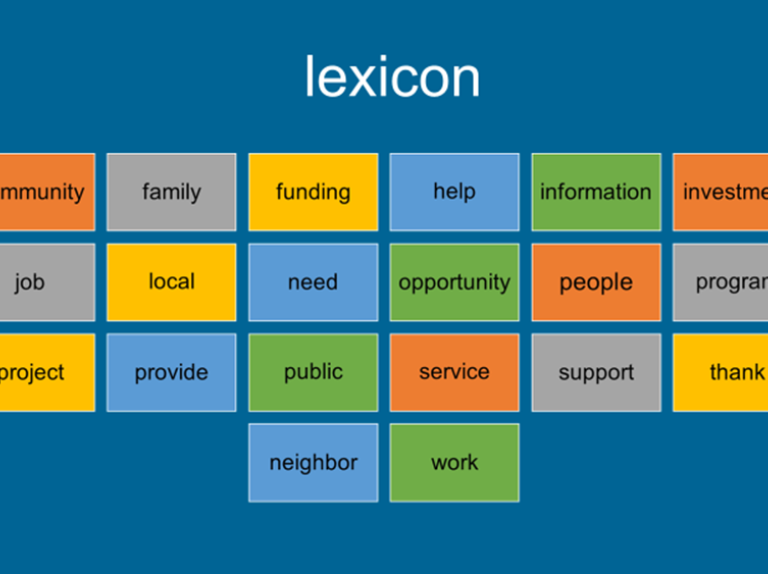
By Jack Johnson and Andreas Weissenborn, Destinations International Foundation

Words matter in politics and those words need to be chosen carefully. If we are going to be successful in changing the narrative surrounding our industry, it starts with a values-based approach. That means talking to stakeholders in a manner that is simple and emotional and connects their values to your organization. It also means using words that people recognize, understand and use themselves.

Destinations International annually runs an analysis of political discourse around related topics such as economic development, neighborhoods, public safety, education and other public goods, and found that many of the same keywords were being repeated by political leaders when they talked positively about them. Political leaders are renowned for their constant testing of words and phrases, so we know that they have found that these words resonate with their constituents who are our residents. To position our mission as a shared value in our community making our efforts a public good, our destination organizations a public asset, we need to use these same words and phrases.
Recently we posed the question, in this COVID-19 environment we are in, what are the words that are being used by elected officials now. On March 11th, 2020, the World Health Organization (WHO) gave us the declaration we are all currently living with, pandemic. Much like our own writings, words matter in politics, and WHO’s change in their vernacular from PHEIC (Public Health Emergency of International Concern) onto Pandemic was an intentional shift in tone to alert governments around the world that we have reached an alarming level of severity and spreading of the COVID-19 transmissions. A figurative ‘Use Caution Ahead’ road sign for us all.
With the declaration now over a month ago, we’ve seen the new words shift around us and old words not heavily utilized since war-time make it into the public domain. ‘John Baugh, a linguist at Washington University in St. Louis, says doctors are desperate to shake the public to attention, using metaphors they think can convey the seriousness of the problem. Politicians may be doing the same — or may be trying to capitalize on catastrophe. “They’re intended to grab attention, whether it’s politically motivated or for some other reason,” Baugh said.’
But what about the words that are surrounding these? How else does a pandemic influence our daily lexicon? The answer is surprisingly similar to our own Tourism Lexicon shown above, tapping into those words that match a similar transformative and emotional resonance.
Running an analysis in the United States of the words that surrounds ‘pandemic’ brings us the following 10 words, with 3 out of the 10 also appearing on our Lexicon.
- people
- know
- case
- time
- business
- get
- need
- help
- health
- home
When we look at Canada, we see a similar list for how Canadian politicians are speaking about the pandemic. With the same 3 words also appearing on our Tourism lexicon plus a fourth (support) and the following three (health, case, business) shared across both countries.
- health
- need
- people
- government
- time
- help
- update
- support
- case
- business
Those three words – People Need Help – go to the core of why a destination organization exists. A destination organization is a community asset responsible for programs promoting a community as an attractive travel destination and enhancing its public image as a dynamic place to live and work. Through destination stewardship and brand importance, they strengthen the community’s economic position and vitality which provides an opportunity for all the people in the destination.
As you talk with your elected officials, your stakeholders and your residents use these words – particularly the Tourism Lexicon words – People Need Help. Frame your efforts in this way – helping people, filling a need, supporting government efforts, and putting the health of your residents first!
About the Authors

Chief Advocacy Officer
Destinations International

Senior Director of Research & Advocacy
Destinations International
Weissenborn spent just short of 11 years with Visit Baltimore helping with its Research, Technology, and Information Systems across the organization. In 2017, he joined the Association on behalf of a Destinations International Foundation initiative to be a dedicated research source for Destinations International.
